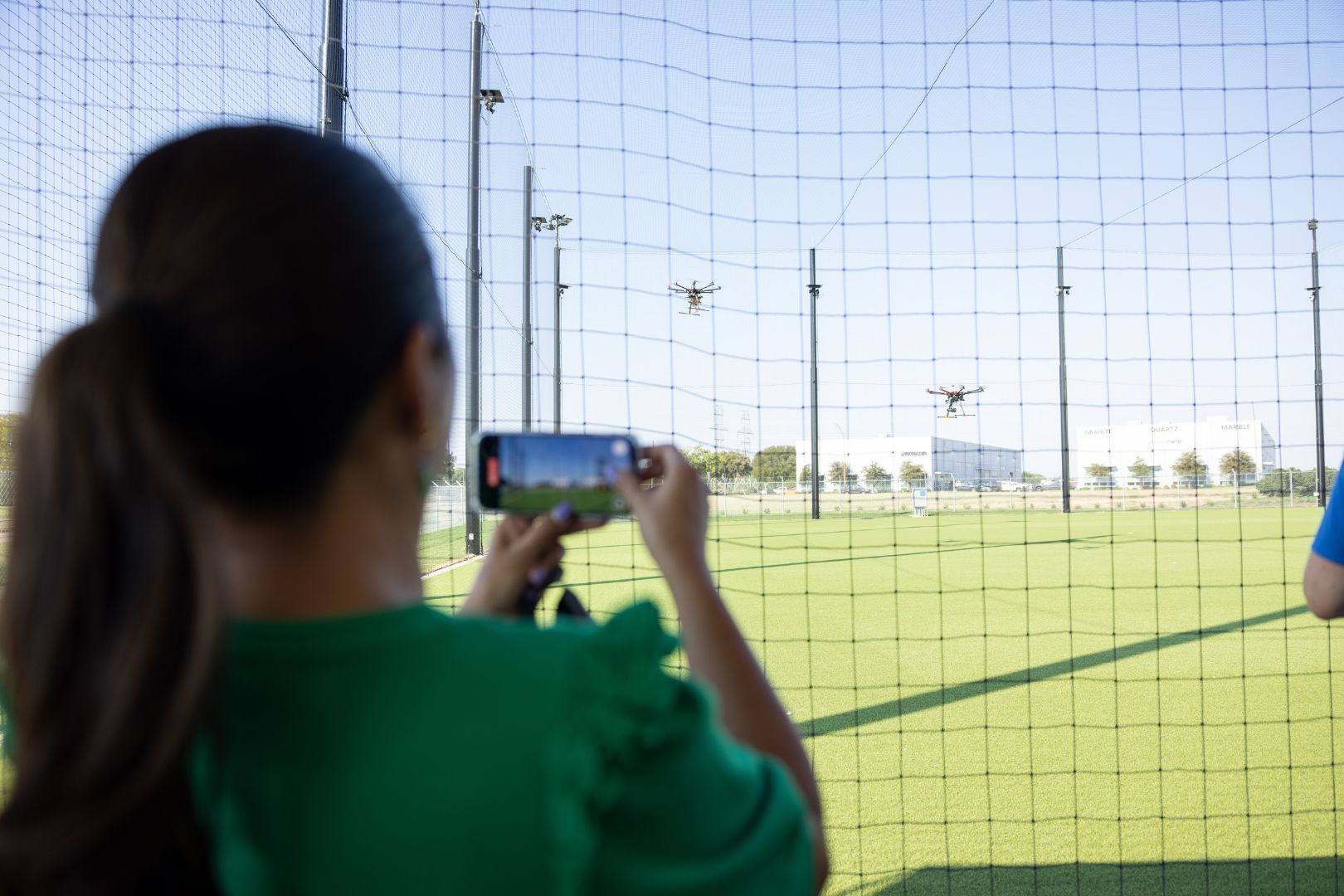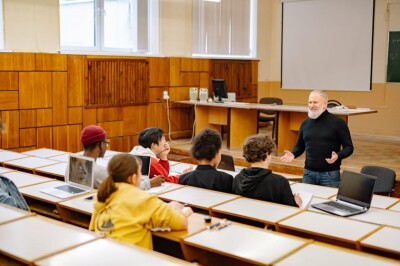This week, the University of Texas at Arlington unveiled its new Maverick Autonomous Research Center, or MAVRC, which it describes as a “cutting-edge outdoor netted drone facility set to accelerate autonomous technology research and strengthen Fort Worth’s role as the ‘Aviation and Defense Capital of Texas.’” They note that roughly 150 people – including industry leaders, researchers from universities across the state, and community partners – gathered together for the unveiling on Tuesday, September 16.
MAVRC is designed to support a wide variety of projects within the UAV industry, ranging from use cases for defense, commercial opportunities, and public safety. Specifically, the university points to areas like improving drones’ ability to navigate obstacles, payload testing, monitoring crops, and inspecting infrastructure as a handful of examples of projects that can and will be tested in this new testing facility. With all of these possibilities, they call MAVRC a “versatile tool for innovation, public safety, and real-world problem solving.”
“This is a perfect addition to UTARI, where we specialize in applying cutting-edge technologies to real-world engineering problems,” said Eileen Clements, interim executive director at UT Arlington Research Institute (UTARI), in a statement. “We are excited for all the new opportunities this facility will enable for UTA faculty, researchers and students, as well as our business partners in the North Texas community.”
UTARI is the university's research institute located in Fort Worth and is the official home of MAVRC. This new research center is a large, 120-150-foot structure that spans 40 feet in the air and includes 26 motion-capture cameras, wireless internet, and nighttime lighting. Researchers, students, and industry partners can test advanced autonomous aerial vehicles in a controlled, FAA-compliant environment, according to the university.
“Located in Fort Worth, the Aviation and Defense Capital of Texas, this state-of-the-art center positions our region at the forefront of autonomous systems research,” said Wayne Atchley, vice president for regional campuses, in a press statement. “MAVRC is not just a building; it is a hub where faculty, students and industry come together to solve real-world problems. It will be a catalyst for regional growth, preparing students for emerging careers, building strong industry partnerships and ensuring Fort Worth remains a leader in advanced air mobility.”
“This is a partnership between the College of Engineering and UTARI,” added Peter Crouch, dean of the College of Engineering. “Given the complicated restrictions of flying unmanned aerial vehicles, this space will play a pivotal role in helping us innovate and advance the technology in a safe environment.”
Source: University of Texas at Arlington
















Comments